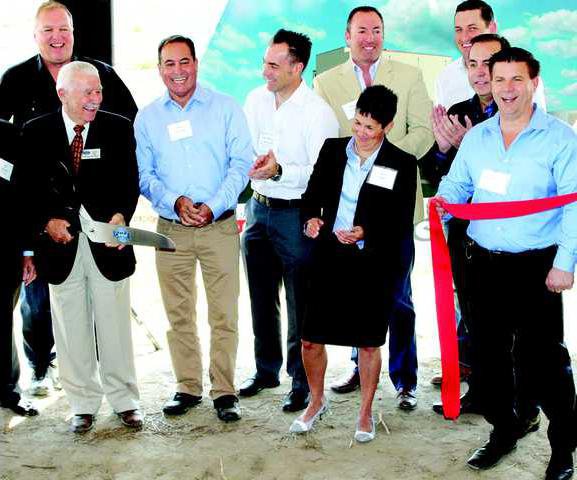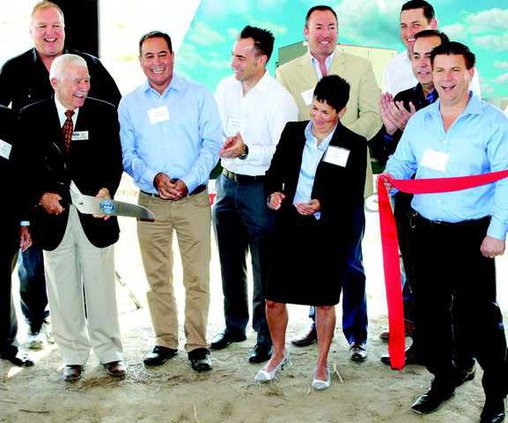When it comes to small business friendliness, California is among the worst states in the country according to a recent survey by Thumbtack, which gave the Golden State a grade of F. In the fifth annual survey, more than 12,000 U.S. small businesses participated in the study, collectively grading each state on the government policies that affect their businesses.
Between April 13 and May 6, Thumbtack surveyed skilled professionals from across the nation, operating across hundreds of categories, including as electricians, music teachers, wedding planners, wellness professionals, and more. The survey asked these entrepreneurs about the policies of their states and cities toward small business, as well as the overall level of support in their community.
California received not only a grade of F for overall friendliness, but also in ease of starting a business, business regulations, health and safety regulations, employment, labor and hiring regulations, tax-related regulations, licensing regulations, environmental regulations and zoning regulations. The state also received a grade of C in ease of hiring and a B- in training and network programs.
California is also ranked as the third worst for small business friendliness in the nation, falling one spot from last year’s fourth place finish. The state has consistently been ranked in the bottom five every year since the survey’s inception.
“Skilled professionals on Thumbtack report that when government regulations complicate obtaining licenses and permits, hiring employees, and paying taxes, it is harder to start and grow a business,” said Lucas Puente, an economist at Thumbtack. “The highest-rated governments make regulations easy to comply with and enforce them consistently. They also invest in helpful training programs and government websites. These insights provide a roadmap for policy makers to create environments that foster entrepreneurship and innovation-outcomes critical for continued economic growth.”
Skilled professionals who found their governments to be friendly for small businesses were most likely to rate them highly on licensing requirements, tax regulations, and labor and hiring rules. These policies have consistently ranked among the top concerns for businesses since 2012.
In 2016, the influence of each of these factors in driving grades depended on the level of government. Perceptions of licensing friendliness were more important for city rankings because local municipalities and counties are often more responsible for licensing, permits and other forms and fees to run a business.
Despite the failing grade that California received, Stanislaus Economic Development and Workforce Alliance CEO David White believes that the Stanislaus County is very business friendly.
“The continual barrage of anti-business type measures that come out of Sacramento are always a challenge, but we are doing everything we can to stop that in the Valley,” said White. “We see industries continuing to grow and companies continuing to invest. Locally, we see good things happening, but it would be even better if we had a more positive business environment at the state level.”
White added that despite the report that most business owners in the state are unhappy with a majority of business regulations, entrepreneurs in Stanislaus County seem to be happy with their location.
“We have not seen major migration out of Stanislaus County,” said White. “Here in the Valley, we have so many positives: optimum growing climates for the products we produce, a great manufacturer supply chain and a great work force.”
Many businesses in Stanislaus County are based around agriculture, explained White, making it difficult for them to move their production to another state. But, he noted that many cities within the county, such as Turlock, are perfect for small business owners that are not ag-centric.
“Turlock is a great city,” said White. “It is very business friendly and easy to work with, and the culture is more favorable to small, family-owned businesses.”
Turlock Chamber of Commerce President and CEO Karin Moss echoed White’s sentiments, contributing Turlock’s small business success to the city’s “hometown feeling.”
“I want to know who I’m doing business with, and in Turlock I can do that,” said Moss. “There are a lot of resources available here. I’m seeing forward thinking and upward mobility.”
According to Moss, the Chamber helps local entrepreneurs aggregate their businesses with other like-minded business people, resulting in camaraderie between business owners. The success of Turlock’s local businesses thrives off of the “shop local” mentality that many Turlockers have.
“Collaboration is key,” said Moss. “If the state received an F, I don’t think it has trickled down to Turlock.”





